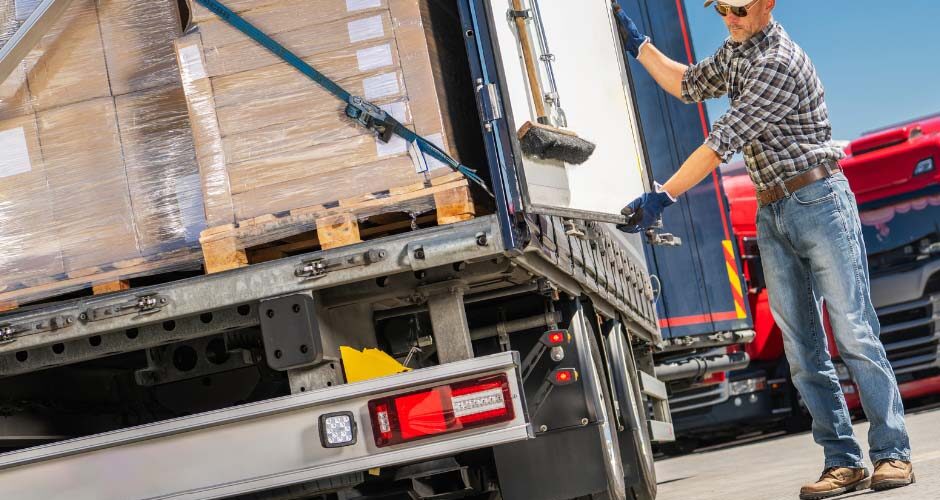If you run a trucking business—or are considering getting into hauling—you already know there’s more to insurance than just covering trucks and drivers. One major piece is cargo insurance: the coverage that protects the goods you transport. Without it, losses or damage to freight can quickly eat into profits, damage reputations, or lead to legal liability. Let’s unpack what cargo coverage is, why it’s important, how it works, and what you should watch out for.
What Is Cargo Coverage?
Cargo coverage (sometimes called “motor truck cargo insurance,” “freight insurance,” or just “cargo insurance”) is insurance that protects the goods being hauled by a commercial vehicle. It applies when you are transporting someone else’s property (or sometimes your own in certain operations) and that property is lost, damaged, or destroyed while in transit.
It typically covers:
- Loss or damage during transit (accidents, collisions)
- Theft, hijacking
- Fire, vandalism
- Damage during loading or unloading (if the policy includes that)
- Sometimes special endorsements like spoilage (for refrigerated goods)
Who Needs Cargo Coverage?
Almost any trucking business that hauls freight for hire will need it, but here are specifics:
- For-hire carriers transporting goods for others
- Owner-operators under contract with brokers or shippers
- Fleets that transport specialized or valuable cargo
- Carriers hauling perishable goods (which may need special add-ons)
- Interfaces with shippers/brokers who often require minimum levels of cargo coverage
Even if not legally required, cargo coverage is often contractually required by brokers, shippers, or clients.
Key Elements of Cargo Policies
Here are the components you need to understand in a cargo insurance policy:
| Element | What It Means | Why It Matters |
| Policy Limit | The maximum amount the insurer will pay per loss or per shipment. | If your cargo is worth more than the limit, you’re exposed. Overestimating value or underinsuring can cause problems. |
| Deductible | The amount you pay out-of-pocket before insurance kicks in. | Higher deductibles lower premiums but increase risk you bear. |
| Covered Perils | Which risks are insured: fire, theft, collision, weather, etc. | Some policies are “named perils” (only those listed) vs “all risk” (everything except exclusions). |
| Excluded Goods or Situations | What isn’t covered (e.g. certain types of cargo, damage caused by bad packaging, delays, spoilage without the right endorsement). | Not knowing exclusions leads to denied claims. |
| Special Endorsements | Extra coverages like refrigeration breakdown, live cargo, high-value items, etc. | If hauling perishables or expensive goods, endorsements matter a lot. |
| Loading/Unloading Coverage | Whether damage during this phase is covered. Sometimes unloaded cargo gets exposed to risks like dropping, mishandling, weather exposure. | Many losses happen during loading/unloading. If policy excludes this, your risk is greater. |
How Cargo Coverage Fits with Other Trucking Coverages
Cargo coverage is just one piece in a larger insurance puzzle. Others include:
- Primary liability / commercial auto liability: covers damage/injuries you cause to others in accidents.
- Physical damage: covers damage to your equipment (truck, trailer) from collisions, vandalism, etc.
- General liability: for risks not tied to driving, like incidents at docks, customer property damage, etc.
Cargo coverage focuses on the load itself, not the vehicle or third-party liability.
Things You Should Watch Out For
To ensure your cargo coverage works when you need it, keep in mind:
- Value Disclosure – Be accurate with declared value. Undervaluing to save on premiums can lead to out-of-pocket expenses if a claim arises.
- Bill of Lading & Documentation – Proper paperwork helps: manifest, condition of goods before loading, signatures, timestamps, temperature logs (if needed). These help with proving loss or damage.
- Understanding Transit Terms – Where the responsibility shifts: is the goods’ risk transferred when loaded, during transit, or after delivery? Who’s liable in which phase?
- Inspect & Maintain Equipment – Especially for perishable goods or sensitive cargo: refrigeration units, tarps, doors, loading gear. Failures there can lead to cargo spoilage or damage that might be excluded.
- Security & Theft Prevention – Parking in safe areas; secure locking; tracking devices. Theft or damage claims are more likely if cargo is left unattended in risky zones.
- Know Shipper/Broker Requirements – Many brokers or shippers require a minimum cargo limit. Sometimes, they even demand certain endorsements (like refrigerated goods, high-value items, etc.).
- Understand Exclusions – Know what’s not covered: damage due to improper packing, delays, temperature extremes (without endorsement), war or government seizure, etc.
How to Choose the Right Cargo Coverage
Here are practical tips when selecting or reviewing cargo insurance:
- Match Coverage to Cargo Type: The type of goods (fragile, perishable, hazardous, bulk) should drive what endorsements or limits you need.
- Pick an Appropriate Limit: Think about worst-case losses (full load value); consider getting additional coverage if your regular limit falls short.
- Balance Premium vs Risk: If you haul many smaller loads vs few big ones, deductible choices, transit routes, security features all influence cost.
- Check Carrier’s Underwriting Requirements: Factors like driving record, loss history, vehicle condition, security practices all affect your premium.
- Choose a Trusted Insurer & Agent Experienced in Trucking**: Someone who understands cargo fluctuations, transit risk, special endorsements. They can help avoid claims denial due to technicalities.
A Simple Example Scenario
Here’s a hypothetical to illustrate:
You run a refrigerated trucking business hauling produce from farms to grocery warehouses. Without a refrigeration breakdown endorsement, your policy might cover damage in collision or fire, but not spoilage if the refrigeration unit fails due to mechanical issues. Suppose that happens: a breakdown causes delay, produce spoils. If you had that endorsement, you might be able to cover the loss. If not, the entire load could be a loss and you absorb the cost.
Final Thoughts
Cargo coverage is essential in commercial trucking. It protects not just your clients’ goods, but your business reputation, your bottom line, and helps you meet contractual obligations. Having the right policy and endorsements, understanding limits and exclusions, and maintaining good practices can make a big difference between a claim that “works in your favor” and one that leaves you exposed.
Want to make sure your cargo, routes, and business are fully protected? Contact us for a commercial trucking insurance review. Let’s build a policy that fits your type of hauling—so you can drive with confidence and deliver without worries.

